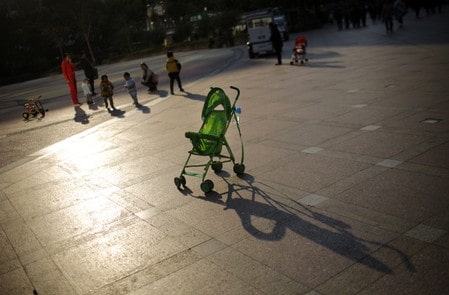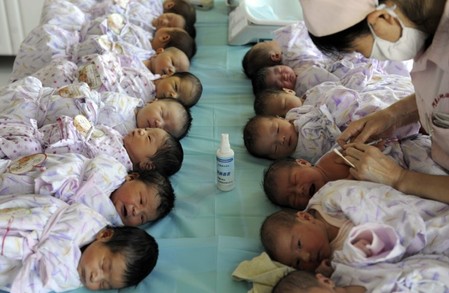SHANGHAI (Reuters) – China’s birth rate is set to decline further this year as well as over the next few years, despite the country’s 2016 move to relax its controversial “one-child policy”, the China Daily newspaper said on Thursday, citing population experts.
Though China’s birthrate hit its highest level since 2000 in 2016, it fell 3.5 percent last year, and regional data suggests the number will fall even further this year, the newspaper said, citing Zhai Zhenwu, an expert in population studies at China’s Renmin University.
Zhai said births in Jiangsu province in eastern China, one of the country’s most populous regions, had declined 12.8 percent in the first half of 2018, and surveys of hospitals in southwest China’s Sichuan province also show significantly fewer births this year.
Growing concerns about the country’s rapidly aging population prompted a move by China in 2016 to allow all couples to have a second child, relaxing restrictions on childbirth in place for nearly four decades.
In a sign that it would further relax curbs, China’s health commission said in September that it would abolish family planning offices. Reports earlier this year claimed the country was planning to scrap all limits on the number of children a family can have by the end of this year.
China’s elderly population is expected to reach 400 million by the end of 2035, up from around 240 million this year, putting the country’s health services and pension funds under immense strain, according to data published last year by the China Association of Social Security, a research group.
The northeast rustbelt province of Liaoning said earlier this year that it would consider offering incentives to couples to have more children. While its net population is dwindling, Liaoning’s elderly population grew 3.6 percent last year.
(Reporting by David Stanway; Editing by Shri Navaratnam)



